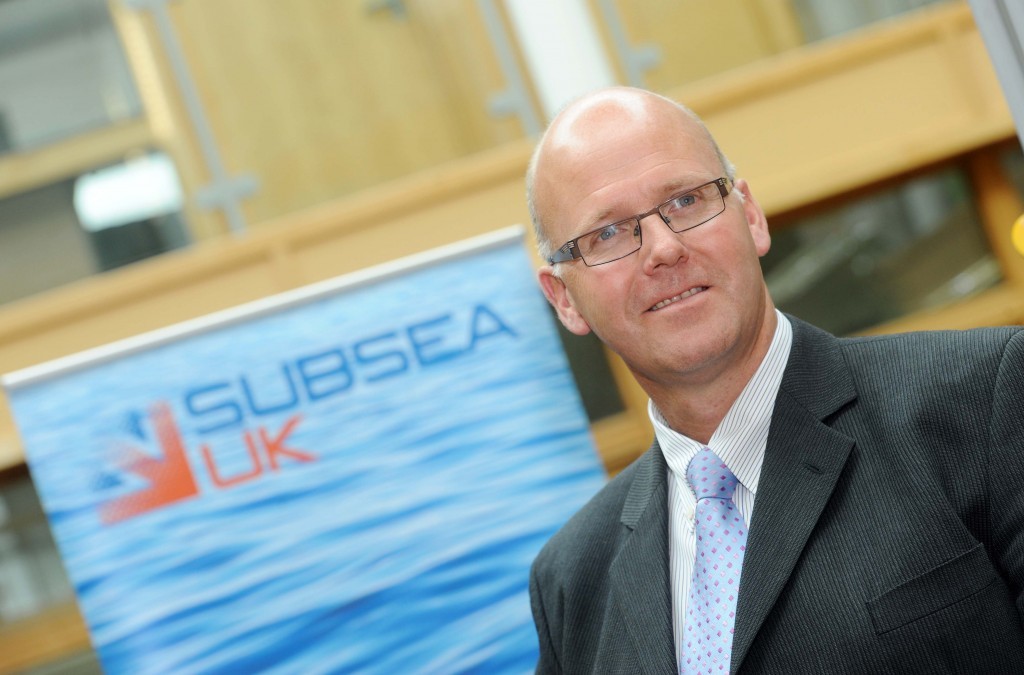
Subsea UK chief executive Neil Gordon has said “only the brave” would make predictions about the sector’s future.
But, looking ahead to a further period of uncertainty after the turmoil of 2020, he added: “One thing we do know for certain is that our industry is nothing if not resilient, and it will find a way to build back stronger.”
With more than 45,000 employees and around 650 companies, the £7.8 billion UK subsea sector is a powerhouse of experience, innovation and technology.
Mr Gordon has been at the helm of industry body Subsea UK, representing more than 300 members, for nearly 10 years.
The roll-out of Covid-19 vaccines and pent-up demand for subsea services mean the sector starts 2021 with “more optimism and confidence”, he said.
He added: “When restrictions are finally lifted, we can expect a surge in demand for oil and gas, which will impact on commodity prices and activity.
“Meanwhile, we have much to be optimistic about in terms of the energy transition and the blue economy. Forecast to be worth around $3 trillion (£2.17trn) in the next 10 years, the blue economy is the sustainable use of ocean resources for economic growth.
“Oil and gas, offshore wind and marine renewables and aquaculture account for around a third of its value.
“This is good news for the subsea industry, whose underwater engineering capabilities – honed in North Sea oil and gas and increasingly in demand in offshore wind – are eminently transferable into established and emerging sectors of the blue economy.
“Offshore renewables now account for 25% of all subsea revenues and subsea firms are reporting increasing diversification, particularly into defence, marine science and aquaculture.
“Subsea UK has been cultivating strong cross-sector partnerships and alliances in this area with bodies such as the UK Defence Solutions Centre, Scottish Aquaculture Innovation Centre and Renewable UK.”
Mr Gordon said the oil and gas supply chain had a key role to play in the UK’s energy transition, adding: “It needs to be at the heart of discussions with industry and government, shaping and informing a strategy for how the UK can competitively develop and deliver the technology and services to support the race to net-zero, cementing the UK as a world-leader in low-carbon and creating the jobs and exports of the future.”
Subsea UK’s CEO also said Westminster’s recent £1.3m commitment to supporting a “world class” centre for underwater engineering in Aberdeen was a “green light for us to move into the implementation phase” following confirmation of Scottish Government funding earlier last year.
He added: “The funding from both governments recognises the tremendous scale and potential of underwater engineering and technology as a valuable, standalone industry sector.”
And describing 2019 as “a year like no other” for the sector, he said: “The decade started on a positive note, with the biannual subsea business activity review, published in January, showing the industry was making headway after the challenges of a prolonged downturn.
“The expectation of growth among tier one companies and SMEs (small and medium-sized enterprises) was high, fuelled by a recovering oil and gas sector and by the exciting opportunities presented by the energy transition.
“As a result, the mood at Subsea Expo in February was upbeat. With over 6,600 delegates, one of the largest attendances on record, the event welcomed the biggest delegation of visitors from all four corners of the globe.
“But then everything changed in March as the world went into lockdown due to the pandemic.
“Not only did companies have to quickly adapt to remote working, they had to go into survival mode, cutting capex (capital expenditure) and opex (operating expenses), furloughing staff and taking advantage of VAT and PAYE deferrals to preserve cash.
“Despite inevitable and unavoidable redundancies and restructurings, the subsea industry appears to have weathered the storm, with many companies now reporting a steady state and some, particularly SMEs, reporting a cautious optimism.”
Recommended for you
